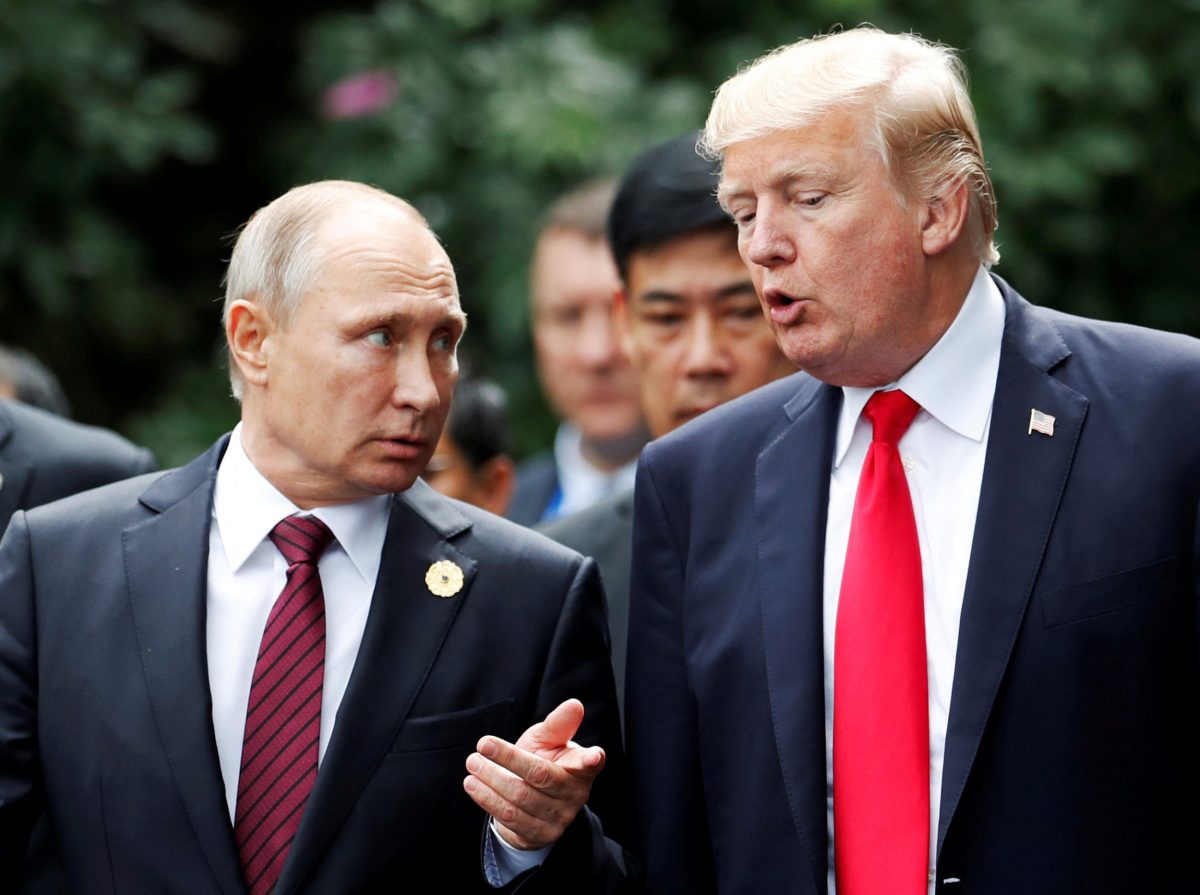Russia’s Nuclear Posturing and the Path to Ceasefire Talks
As the deadline for a ceasefire in Ukraine approaches, Russia has taken a significant step by withdrawing from the Intermediate-Range Nuclear Forces (INF) Treaty. This move has raised concerns among experts, who believe it is more about strengthening Russia’s position in upcoming negotiations than a direct response to U.S. actions.
The INF Treaty, signed in 1987, prohibited the development and deployment of ground-launched ballistic and cruise missiles with ranges between 500 and 5,500 kilometers. However, Russia recently announced that it no longer considers itself bound by the treaty, citing the United States’ alleged efforts to deploy intermediate-range weapons in Europe and the Asia-Pacific region.
This decision comes just days after former Russian President Dmitry Medvedev made provocative statements on social media, prompting U.S. President Donald Trump to reposition two nuclear submarines to “appropriate regions.” In response to Trump’s warning about potential sanctions if Russia does not agree to a ceasefire, Medvedev claimed that the U.S. was playing the “ultimatum game,” which he described as a threat and a step toward war.
Experts suggest that Russia’s withdrawal from the INF Treaty is not necessarily a sign of immediate concern over U.S. rhetoric but rather a strategic move to gain leverage in negotiations. With U.S. special envoy Steve Witkoff set to meet with Kremlin officials this week, the move could serve as a bargaining chip in discussions about a potential ceasefire.
Why Did Russia Withdraw from the INF?
The U.S. has long considered the INF Treaty outdated, accusing Russia of violating its terms for decades. In 2019, during Trump’s first presidency, the U.S. withdrew from the treaty, citing Russia’s deployment of 9M729 cruise missiles, also known as SSC-8 missiles. Russia officially confirmed its withdrawal, blaming NATO countries for an anti-Russian policy.
Dmitry Medvedev stated that this move would force all opponents to reckon with a “new reality” and hinted at further steps. Experts like Luke March, a professor at the University of Edinburgh, believe that Russia is not overly concerned with U.S. threats, which have often lacked follow-through. He noted that Trump’s support for Russia has been inconsistent, with repeated ultimatums failing to produce tangible results.
The Implications of Russia’s Actions
Melanie Garson, an associate professor at UCL, suggested that Russia’s approach is cautious and aimed at strengthening its bargaining position. She explained that the withdrawal allows for a face-saving opportunity to rebuild communication and relations between the U.S. and Russia, potentially breaking the current impasse.
Dr. March emphasized that Russia’s withdrawal is an acceleration of existing trends, as Moscow has already deployed missiles banned under the INF Treaty. He noted that while the move may not lead to immediate changes on the ground, it opens the door for future escalations.
Sidharth Kaushal, a senior research fellow at the Royal United Services Institute (Rusi), warned that Russia’s withdrawal poses a threat to both Ukraine and European neighbors. He highlighted the significance of intermediate-range capabilities, such as the SSC-8 missile, which led to the U.S. withdrawal from the INF Treaty.
Can US-Russia Talks Lead to a Ceasefire?
Despite recent discussions, experts remain skeptical about the likelihood of a breakthrough. Dr. March pointed out that Russia’s demands—demilitarization, de-Nazification, and neutrality—are unrealistic and unattainable without leaving Ukraine defenseless. He argued that even if Trump increases sanctions or military support, it would not reverse the advantages Russia has gained.
Volodymyr Zelensky, Ukraine’s president, recently had a “productive” conversation with Trump, covering topics such as ending the war and finalizing a drone deal. However, the path to a ceasefire remains uncertain, with Russia likely to use the deadline as a tactic to gain more time and strengthen its position.
In conclusion, Russia’s nuclear posturing appears to be a calculated move to bolster its negotiating stance ahead of critical talks. While the immediate impact may be limited, the long-term implications could reshape the dynamics of the conflict and international relations.

